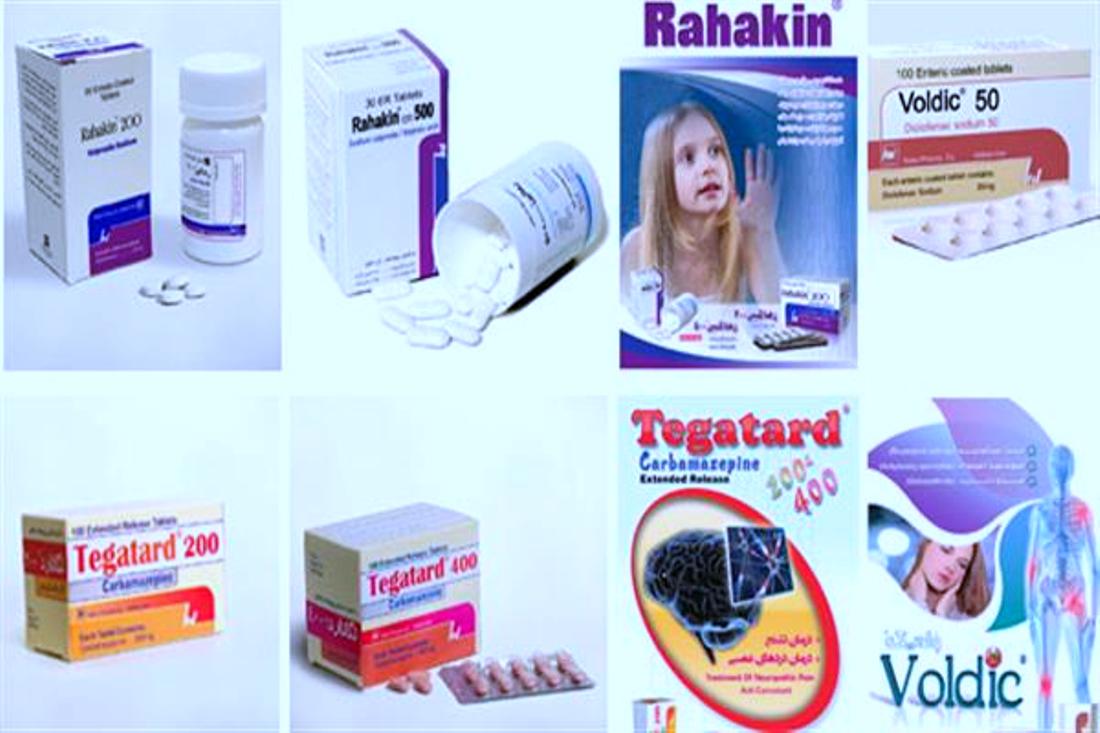Iran produces 98 percent of the country’s internal pharmaceutical demand, a lawmaker said as the country moves towards meeting 100 percent of domestic consumption.
'98 percent of the internal pharmaceutical demand, that is 70 percent of the value of all used medicine, is produced inside Iran,' Gholam Ali Jafarzadeh Imen Abadi, a lawmaker from the northern city of Rasht said last Sunday.
He added that last year 970 pharmaceutical production licences were issued, 80 of which belonged to the medicine that is produced for the first time in the country.
The member of parliament stressed that there are up to 600 companies that produce medical equipment, that is 35% of all needed medical equipment.
Self-sufficiency in epilepsy medicine
For exmple, Iran embarked on domestically producing eight sustained-release tablets that are heavily used by epilepsy patients, making the country self-sufficient in meeting a large portion of the internal demand.
'For the first time in Iran we have succeeded in producing edible sustained-release pharmaceuticals,' said Gholam Reza Akhavan Farid, Raha Pharmaceutical Company Managing Director last Saturday.
These products will save Iran from spending $30 million annually, according to Akhavan Farid who manages this knowledge-based company, located in the central Iranian city of Isfahan.
He said his company has sold more than 3.5 million dollars worth of Tegatard® (Carbamazepine 200 mg) and Rahakine® 200 (Sodium valproate) per year, meeting a major part of the country’s internal market. “All the company’s raw materials are produced in Iran,” Raha Pharmaceutical Company managing director stressed.

A collage of some of the domestically-produced pharmaceuticals by Raha Pharmaceutical Company. IRNA
The pharmaceutical company, founded in 2008, has produced over 120 varieties of finished products such as tablets, capsules, pellets, ampules, eye drops, nasal sprays, syrups and semisolids (creams, gels and ointments) so far.
Sustained-release dosage forms are those designed to release a drug at a predetermined rate in order to maintain a constant drug concentration for a specific period of time with minimum side effects.
The advancement is of huge significance as it can offset the unilateral US sanctions that have impeded the import of certain medicaments from abroad. Earlier in January, Iranian Epilepsy Association had said the renewed US sanctions have caused shortage of some medication to treat the patients.
“Some of the patients suffer from epilepsy that is resistant to treatment and must consume new foreign medicine but unfortunately the sanctions have caused shortage in such drugs,” regretted Dariush Nasabi Tehrani, Iranian Epilepsy Association Chief Executive, according to Iran's semi-official Mehr News Agency.
“Currently there’s huge shortage in various medicine used by epilepsy patients,” added Tehrani, a neurosurgeon himself.
Some well-off patients have saved the medicine they need for a year, according to the doctor who warned that “those low-earning patients have had to spare some medicine and that has negatively affected their health.”
It’s estimated that more than one million people in Iran suffer from epilepsy. In case the patients don’t receive medication at the right time, it leads to convulsive seizures that “puts patients' lives at risk in certain jobs".
More than 60% of Iran’s imports from Switzerland are medicine and medical equipment. In an interview with Iran Chamber Newsroom, Sharif Nezam-Mafi confirmed shortages for certain patients following the renewal of US sanctions on Iran.
Swiss authorities are now trying to create a payment channel with Iran to allow undisrupted flow of humanitarian aid into Iran.
Watch video: Sharif Nezam-Mafi talks Swiss payment channel, humanitarian aid (26 Dec., 2018)
Tehran has been looking towards Brazil and India to import its much-needed medicine following the restoration of US sanctions that took effect 5 Novemebre. However, doctors are concerned such drugs won't have the necessary quality in comparison to their European ones.
Is Swiss humanitarian payment channel ready?
President of Iran-Switzerland Joint Chamber of Commerce says a Swiss payment channel to help export of humanitarian goods to Iran is ready but is waiting the Iranian money to become operational.
“The channel is ready, its characteristic s have been announced, but it’s waiting for the deposit of necessary funds from Iran,” Sharif Nezam-Mafi told Iran Chamber Newsroom in January. There is no Iranian money in the channel yet, he said.
The Swiss payment channel will be a separate financial transaction system with Iran that will run in parallel with Europe’s so-called Special Purpose Vehicle (SPV), called Instrument in Support of Trade Exchanges (INSTEX) that was created late January but has not been functional so far.